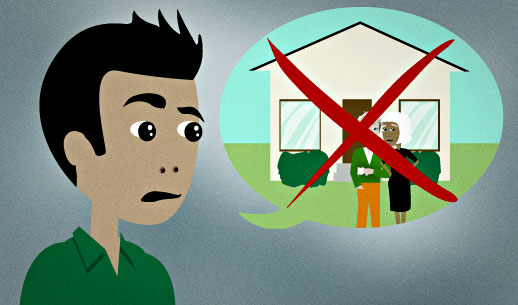“Hopefully it won't come to that.”
You recently quit your job. You're talking to a friend about it. You told him that you could move back in with your parents if you can't find a new job soon. But you don't want to do that, so you say this.
Hopefully it won't come to that.
Want Video and Sound? Follow us on YouTube

Hopefully (clause)
When you hope that something happens, you say "Hopefully (something happens)":
Hopefully my package will arrive in the next day or two.
You can also use it when you hope that something doesn't happen:
Hopefully we won't have any more problems this week.
English speakers use "Hopefully ___" to talk about things that they think are probable or likely.
come to that
When you're talking about something bad that might happen, the phrase "come to that" means for that bad situation to happen. People usually say that they "hope it doesn't come to that":
A: Man, I'm so hungry! If they don't get back with the food soon, I'm going to start searching through the couch cushions for old crumbs to eat.
B: (Laughing) I hope it doesn't come to that!
Another common phrase is "I doubt it will come to that", which means that you don't think something will happen:
A: If they aren't able to cool down the reactor, there could be a nuclear meltdown which would force tens of millions of people to evacuate.
B: I really doubt it will come to that.
The sentence "I hope it doesn't come to that" is also common.
